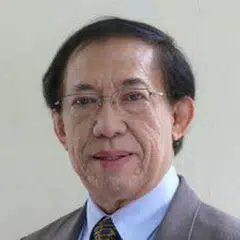How a hoax pandemic donation sparked anti-Chinese and anti-China sentiments in Indonesia
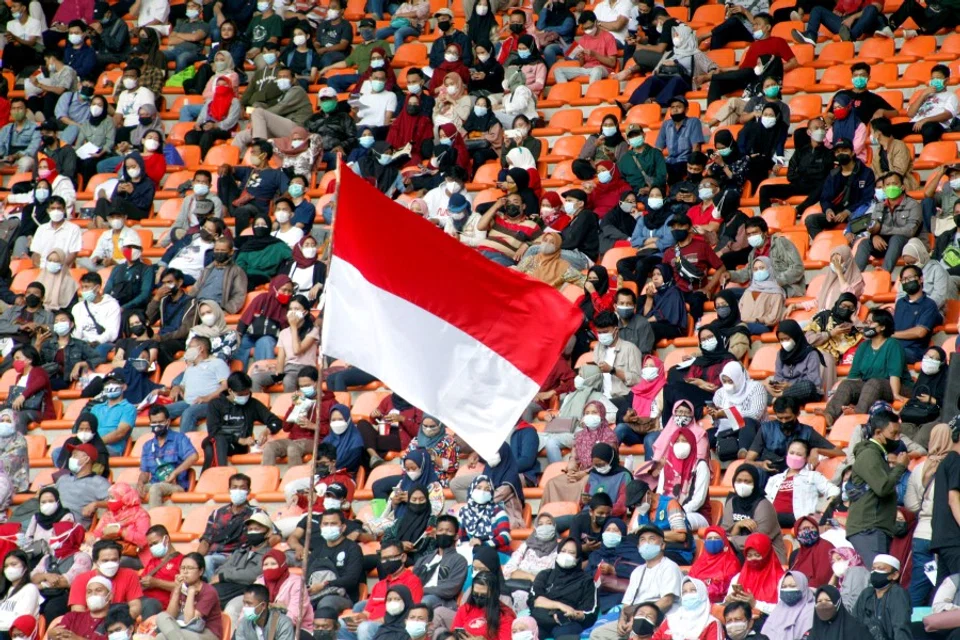
On 26 July, Indonesia's main newspapers reported - complete with video clips - that the family of a late Chinese Indonesian tycoon named Akidi Tio, represented by his youngest daughter Heriyanti, had donated two trillion rupiah (S$188 million) to help the government of South Sumatra with Covid-19 mitigation efforts. This was the largest single donation in Indonesia, and possibly the world, which is quite remarkable.
Coming at a time when the pandemic took a turn for the worse in Indonesia, this donation was timely. No wonder many "indigenous" Indonesians responded positively on social media, with everybody wanting to know exactly who this donor was.
Fraudulent donation politicised
However, there is little information about Akidi; journalists have tried to find out, but turned up no leads. All that is known is that Akidi Tio was born in Langsa in Aceh, where he is said to have owned a soft drink factory. He subsequently moved to Palembang where he was involved in many businesses, while some of his children moved to Jakarta. Word is that Akidi was generous, but did not like publicity, so that he was known to few. He had never been featured in the media, and was not on the Forbes list of richest people.
Akidi died in Palembang in 2009. According to Heryanti, he left a will to donate his life savings when the country needed it most. With the people crying out amid the resurgence of the coronavirus, Akidi's family decided to fulfil his wishes and got the family doctor Hardi Darmawan to get in touch with the government. With South Sumatra governor Herman Deru bearing witness, the donation was symbolically handed over by Heryanti to South Sumatra's police chief, Inspector-General Eko Indra Heri. Eko could be called a good friend of Akidi's family as he knew them from a long time ago; he is also a professor at the police academy.
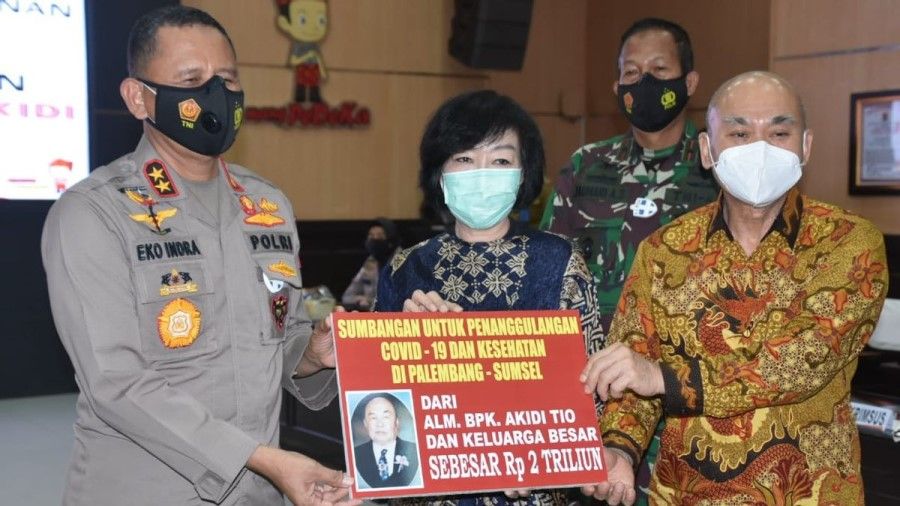
Many Indonesians were moved by the attitude of Akidi and his family in wanting to help their fellow Indonesians regardless of race or religion without wanting any fame or benefits. Pro-Jokowi social media video channels run by indigenous Indonesians rushed to give prominent coverage to the news, playing up the "enormous donation" and mocking the ineffective pandemic efforts of some indigenous Indonesian elites, thereby politicising the donation.
Indigenous social media personality Denny Siregar said Akidi was an ethnic Chinese, but when the pandemic got bad, he and his family selflessly made a huge contribution, which moved Denny and put many Indonesians to shame.
Another indigenous social media personality Rudi Kamri also said this charitable act by Akidi and his family should put racists to shame. He said he had not heard of any tycoon with more money than Akidi, including former Indonesian vice president Jusuf Kalla, making a large personal donation to help Indonesia's pandemic efforts, adding that Indonesians should learn from Akidi.
Soon after, Rudi also posted a video saying that while Akidi donated two trillion rupiah, former (anti-Jokowi) president Yudhoyono only tweeted a "donation" of prayers and thoughts.
Another social media personality Ade Armando also expressed admiration that someone from the ethnic Chinese community that faced discrimination had made a large donation to show that they loved Indonesia, and sarcastically asked how many indigenous Indonesians could do the same, sparking unhappiness among anti-Jokowi social media channels.
Pro-government social media channels were unable to respond, and the Chinese community in Indonesia once again became a target of attack.
Resurgence of identity politics
However, even as the comments were still coming, events took an unexpected turn - one week later, the money had not been cleared. The police began investigations and brought in Heriyanti for questioning. She said the money was in a Singapore bank and the transfer was being processed, and would go through the following day; however, there was no sign of it, leading to suspicions that this was all a hoax.
How would an unknown Chinese businessman have two trillion rupiah in savings? Hardi and Eko admitted their fault in announcing the donation without conducting detailed checks, and apologised to the people of South Sumatra.
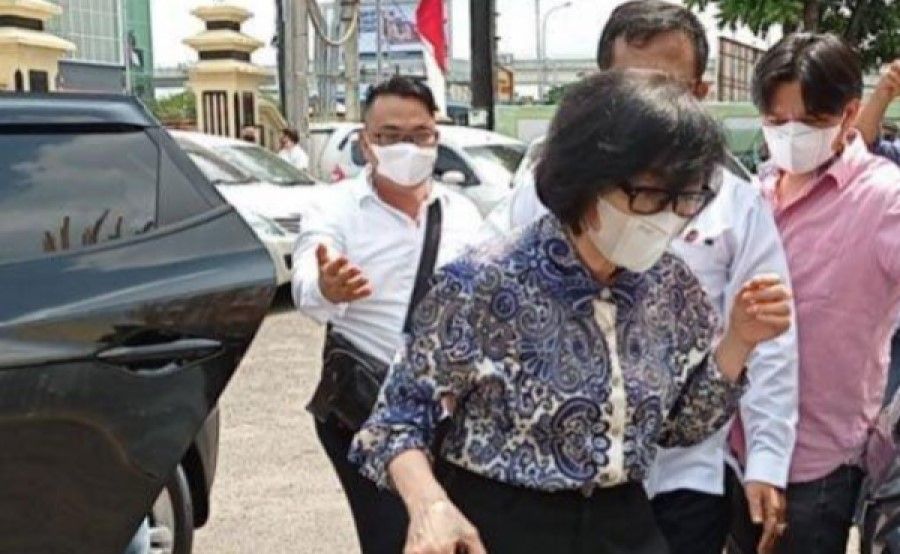
The anti-Jokowi camp started to hit back hard on social media, saying that Akidi's family were frauds and the police had to take responsibility for spreading false information. They even accused Jokowi's "official" social media of trying to create racial conflict, and that it should face criticism and harsh penalties, while news of "fraud" by ethnic Chinese became a hot topic. Pro-government social media channels were unable to respond, and the Chinese community in Indonesia once again became a target of attack.
Identity politics in Indonesia has intensified over the past few years. In fact, before the Akidi incident, the anti-Jokowi camp used race and religion as political capital, smearing ethnic Chinese as anti-Islam and disloyal to Indonesia, and alleging that the ethnic Chinese only made money for themselves in Indonesia and did not care about other groups. They claimed on social media that Chinese Indonesians were not part of Indonesia, and aggressively spread hostile comments about ethnic Chinese, in order to create chaos and try to benefit from the confusion.
The fact is, most born-and-bred Chinese Indonesians consider Indonesia as their country and homeland, and have a mindset of being in it together. They understand their situation, and that they have to handle community relations well if they are to live happily in Indonesia. Since the pandemic struck, Chinese Indonesians have taken the initiative to help those who are in a less enviable situation, especially the majority of indigenous people in poverty.
Soon after the pandemic broke out, a few well-known ethnic Chinese tycoons in Indonesia collectively donated 500 billion rupiah to help the government's pandemic efforts. Some businesses owned by ethnic Chinese, such as herbal company Sido Muncul, donated 15 billion rupiah on its own.
Most ethnic Chinese are not wealthy, but they have donated supplies and medicine to the poor, and provided meals to local indigenous people who need help. Such acts of charity are common, but anti-Chinese social media channels do not report them, but smear ethnic Chinese worse than ever.
Anti-government, anti-Chinese, and anti-China videos on social media recently criticised the government's failure in handling the pandemic, and called for Jokowi to step down.
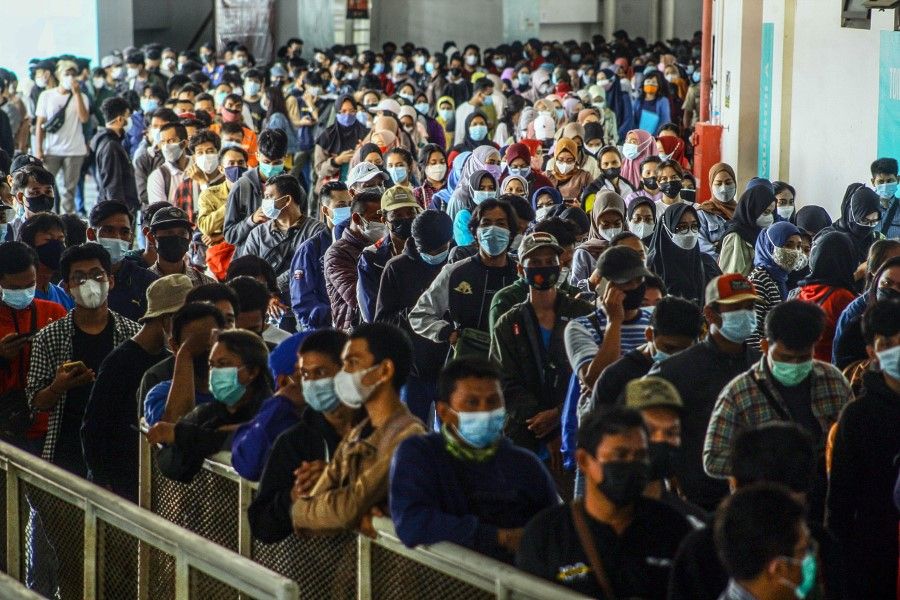
Now, social media channels and videos in Indonesia are divided into the pro-government and anti-government camps. Initially, it was quite balanced, with the pro-government social media personalities having slightly more influence. But the Akidi incident has given the anti-government (and anti-China and anti-Chinese) social media channels an unprecedented opportunity to attack the Indonesian government and ethnic Chinese in Indonesia.
In fact, before this, they were already attacking the Indonesian government and ethnic Chinese, even laying into mainland China and claiming that Indonesia had become a colony of China.
Anti-government, anti-Chinese, and anti-China videos on social media recently criticised the government's failure in handling the pandemic, and called for Jokowi to step down. They even encouraged young people and university students to demonstrate on the streets on 24 July to create chaos. However, their plans did not materialise.
Response of local government and community
Obviously, the news about the Akidi donation sparked major waves, and reactions fell into three main categories. First, taking it as a prank and ignoring it. Second, saying that Hardi and Eko indirectly spread false information by announcing the donation before it was received, and should be punished. Third, pointing out that laws on donations are unclear, and there is a lesson to be learned to improve the current laws on donations.
Some lawyers feel that there are no laws to charge Heriyanti as a "cheat", because she did not lay down any conditions, or gain any monetary benefits. So, how is it cheating?
Although Heriyanti was questioned by police, she claimed that Akidi's money was in a Singapore bank, and the transaction did not go through because the amount was too large and would take a few more days. However, Indonesian authorities investigated and found that Heriyanti's bank records do not show this amount of money. Kompas journalists also found that Heriyanti only has a few million rupiah in her Indonesian bank account, which does not make her wealthy by any means.
Indonesia's Tempo magazine also reported that Heriyanti was involved in some other financial disputes, and had previously been reported to the police; she also owed a doctor friend three billion rupiah that had not been repaid. The general view is that this is all a "prank", but so far nobody knows why she came up with it. Heriyanti is currently facing health issues and has not been detained, nor has she apologised. Word is that the authorities are discussing what charges to bring against her.
Chinese Indonesians support government pandemic efforts
Following the Akidi Tio incident, in just two days, the Paguyuban Sosial Marga Tionghoa Indonesia (Indonesian Chinese Social Clan Association, an association of Chinese in Indonesia) in Palembang and some ethnic Chinese businessmen managed to gather two billion rupiah worth of vaccines, oxygen tanks, medicine, and medical equipment to give to the South Sumatra government.
Identity politics in Indonesia is still going strong, because it is the most useful weapon that the opposition has against the government.
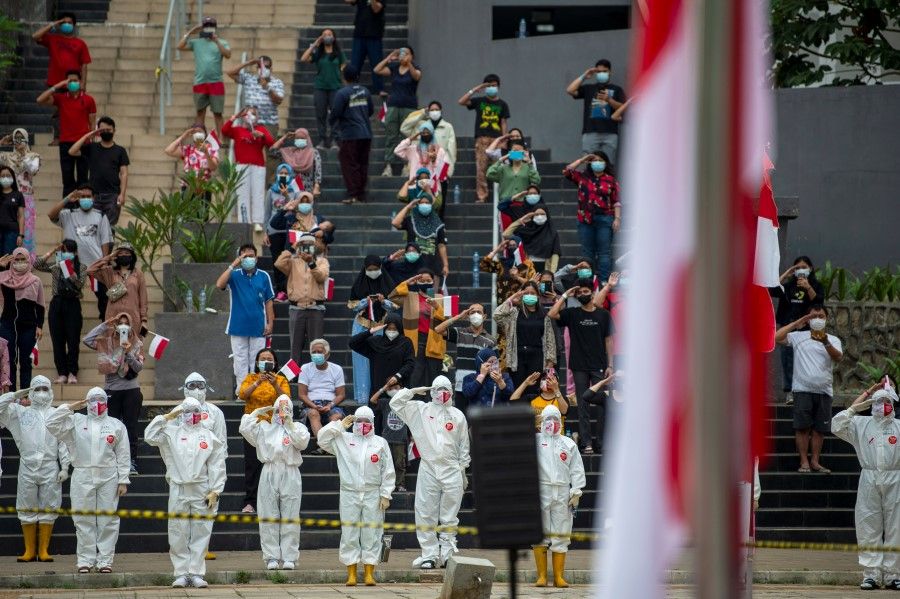
In fact, even amid the resurgence of the pandemic, the support of Chinese Indonesian businessmen for the government did not decline. Recently, when there was a lack of oxygen tanks in Indonesia, the ethnic-Chinese-owned Sinar Mas group immediately sponsored 1,200 tonnes of oxygen per month for patients, equivalent to supplying one million oxygen tanks.
Agnes Monica, a Indonesian singer of Chinese descent who became popular in the US returned to Indonesia and built a vaccination clinic in Jakarta, providing free vaccinations for poor Indonesian residents.
In July this year, Pengusaha Peduli NKRI - a group for the welfare of entrepreneurs in Indonesia, consisting mostly of ethnic Chinese businessmen - worked with Buddhist group Tzu Chi to donate 600 billion rupiah worth of supplies to help government efforts against the pandemic, including 35,000 tonnes of rice for 7 million households, as well as oxygen tanks and vaccines.
However, anti-government and anti-Chinese social media channels are still fanning racism. On 15 July, a tweet from a user called "Black Garuda" falsely claimed that Indonesia was facing a food shortage and called for people to loot Chinese stores and supermarkets in order to survive.
Identity politics in Indonesia is still going strong, because it is the most useful weapon that the opposition has against the government. The Akidi Tio incident has presented an opportunity to anti-Chinese social media channels to smear pro-government social media channels, and try to take identity politics one step further.
